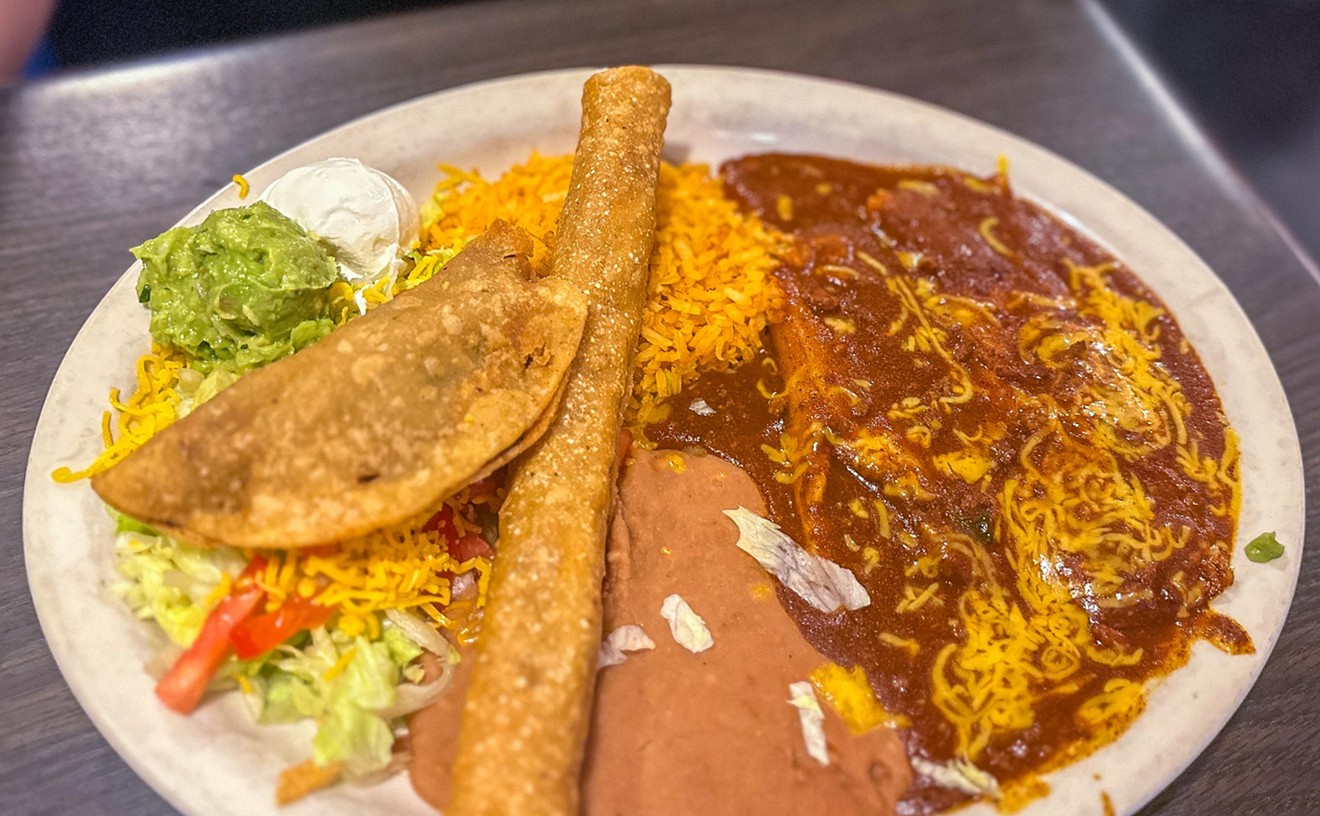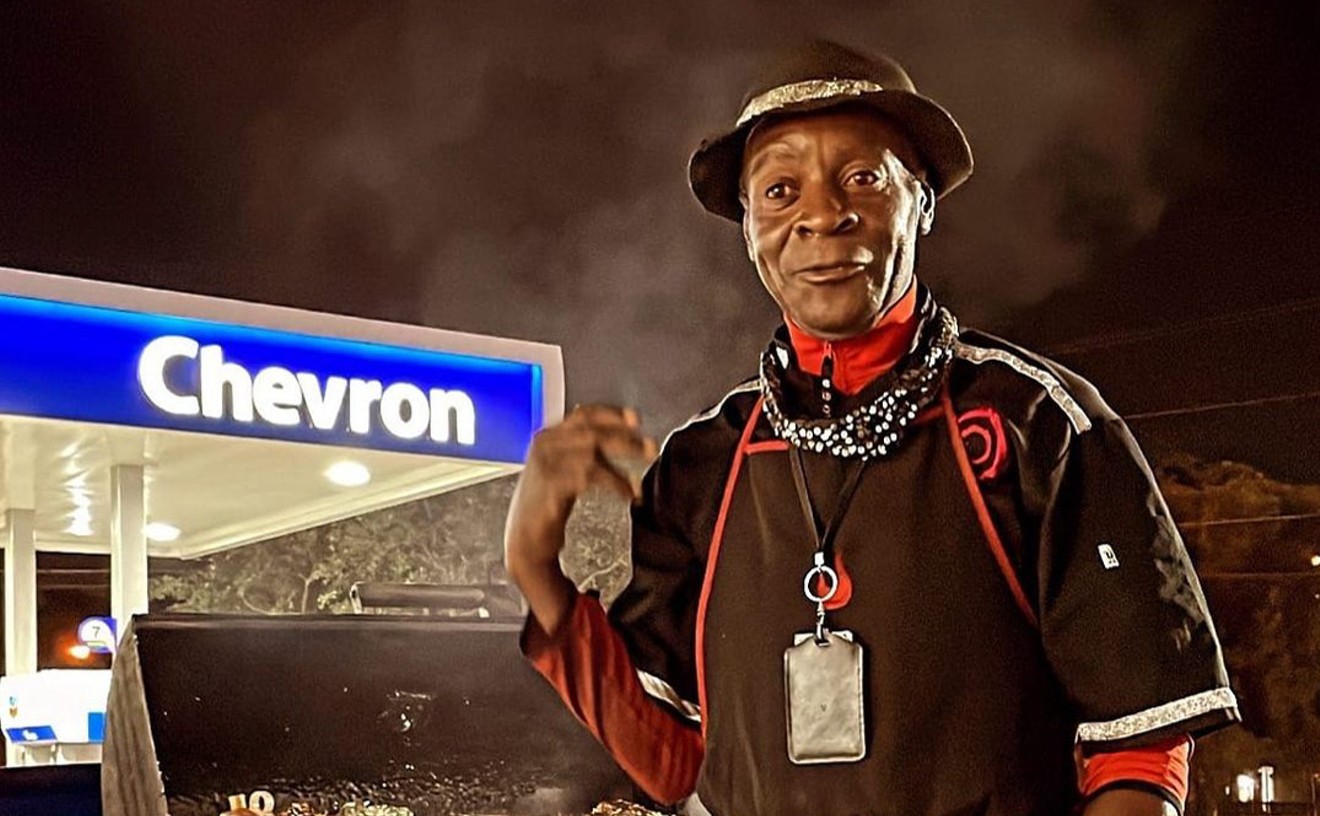"It's kinda weird, honestly," chef David Uygur says of the impending closure of a restaurant he's been associated with for seven years. "It's only gradually becoming real."
For almost a decade Lola—the Van Roberts-owned cottage restaurant on Fairmount—stood as an icon of fine dining in the Uptown area, whether in the hands of opening chef Jamie Samford or Uygur, who made the place into an example of slow foods before the idea of local and seasonal ingredients really took off. Word that Roberts planned to shut down the highly regarded kitchen leaked out on August 5, when Dallas Morning News critic Leslie Brenner called to fact-check a review she had scheduled for the next week's paper. Oddly enough, I had just finished a visit for this column and was as dumbfounded as my counterpart.
Damn—this is Lola. Sales were off, of course, thanks to the lingering recession. But on a Friday night in the generally sluggish late summer, its dining room was full. I get the feeling that Roberts needs some time off. His wife is expecting twins, after all, so he might as well bail for the standard "I want to spend more time with my family" reason before things get rougher.
So Lola will close at the end of October, giving you just two months to bid the place farewell. Fortunately the restaurant's final days won't be some depressing wake—not with Uygur in top form.
His dishes actually ride on that trembling bass line established by side items—the purees and starches considered afterthoughts by so many other chefs—as well as scraps normally deemed too common for the genteel dining crowd: cured meats, pork rinds and pig "trotters," for example. "I'm playing a little more with organ meats than I used to because I like it," he explains—with one exception. "You'll never see kidney on any of my menus."
You will, however, find the occasional pig's feet lurking under the "trotters" disguise. I nearly convinced a quite civilized female friend to order it one evening—that is, until our trustworthy waitress explained the dish in detail. The menu, arranged by courses with perhaps five options under each course holds many surprises. My plate of house-cured meats surrounding a single large pork rind, puffy and crisp and sprinkled with Spanish paprika, drew more doubtful glances from my same friend.
Everyday foods—the forcemeat, sausages and basic vegetables that fed common folk for centuries—are Uygur's forte. A bed of Crowder peas in a dense mirepoix reverberates under the scallops they're meant to support—jostling your attention away from the sweet, clean and gently crusted shellfish. His treatment of this vegetable mélange conjures up the flavors of dinnertime at the all-American family farm (when such a thing existed): natural and vaguely salty, filled out by impressions of clay, brambles and sweet roots. His cold cucumber soup is remarkable for the balance it strikes between heavy cream and the breezy bite of summer associated with this vegetable. The light taste seems to float just above the rich broth, giving it two distinct characters. Sliced duck breast, held in a delicate crust, resonates with fatty, gamy richness. But the pureed corn swabbed underneath bursts across your palate as though it was shorn from the cob only moments before. As good as the main element of each dish is, the side items are even better.
Uygur adores the simple. His arrangement of cured meats is enough to make hair sprout from a grown man's ears—you know, the sort of thing old, burly men with hairy ears used to eat in dim, wooden country taverns, except in this case the flavors and textures build from intricate to bold, from buttery to hard and mottled. There's the intense taste of Sopressata, delicate and peppery testa (a form of head cheese), savory Capacollo, two common sausages and a rustic chicken liver pâté—all of which he learned by trial and error.
"For me, it's the slowest kind of food," he says of preserved meats. "You don't know what it's going to turn out like until a couple of months down the line—I love it." Although waitstaff presents this shared plate (well, normally shared—my friend wouldn't touch it) with utensils, Uygur recommends eating the harder sausages by hand, as body heat releases some of the aromatics through melting fat.
Lola's juxtaposition of fancy and common is pulled off with such grace and cleverness that well-heeled diners plucking up head cheese or crunching down on a big ol' pork rind go unnoticed. The kitchen knows how to sear foie gras to that magical point where brown scars crisp the skin, bringing out bittersweet, meaty flavors without damaging its buttery soul.
Lola has become over its lifespan a place to linger and ruminate on the meal or Van Roberts' wine selection. The restaurant always seems to welcome this, resetting tables and keeping candles lit until closing, refusing to force patrons into a hasty retreat. The downside to this leisurely pace is that our table one Friday evening wasn't ready despite our scheduled reservation. "The people aren't leaving," our waitress told us apologetically. After more delay, she shifted us to the prime seats in front of Lola's picture window—a fortunate turn, or so we thought. It's hard to linger with slow food when you're seated next to a four-top of novices roused by wine and dominated by two screeching female voices. One of these kept retelling a story about her purchase of a pair of high-top Prada boots. For some reason both repeated the word "sphincter"—as if there was some correlation between high fashion and acting like an asshole.
Uygur later tells me he's beginning to feel a bit nostalgic. In our phone conversation last week, he recalls a Restaurant Week several years ago, when the place was swamped with first-timers. It was a Friday or Saturday and this guy, before even looking at the menu asked his waitress, "What kind of enchiladas do you have?" When the waitress said that they didn't serve enchiladas at Lola, the man slammed his hands on the table and blurted out, "What kind of a Mexican restaurant is this?!" and then stormed out.
"I look back on the funny moments," the chef says. It keeps him from getting too emotional about the closing. It's a difficult place to get over. He was there when the tasting room—one of the first in Dallas—opened. His work gave him entrée to the James Beard House in New York, where he was invited to cook, and it put him in the forefront of the local slow foods movement. He was even chosen to represent the city at an international slow foods conference in Italy. "We've gotten a number of calls from people," he continues, "saying 'I got engaged there' or 'I remember this dish'—it's really nice."
I'll tell you what I'll remember after Lola is gone: An evening in the tasting room years ago when multiple courses of Uygur's small plate creations silenced a table of eight normally boisterous friends. We had already started on drinks and could easily have out-vocaled the sphincter women's table. In fact, we were probably responsible for driving at least one quiet couple away—and then the food began arriving...
The layering of flavors, the subtle depth, the savory punch hidden in small bites—we all fell into a contemplative silence, broken only by the occasional murmur of "wow."
Clientele aside, Lola was always the shy, quiet restaurant. While others boasted in the media, Lola began sourcing locally, changing menus seasonally, dedicating a room to tasting plates and perfecting the art of pairing wine. Then it just sat back and watched Dallas come through its doors. Apart from the cooking, it's that lack of attitude I'll miss the most.
There are two months left to experience all this before an era comes to its end—to be wowed or perhaps grow some ear hair.
I'm willing to bet owner Van Roberts still has another restaurant in him. "I think Van has plans for all that wine," Uygur says of Lola's cellar.
As for the chef—well, fortunately for us, he is already on the hunt for a kitchen to call his own, something intimate, Italian and likely very good. But I'll miss Lola just the same.
Lola, The Restaurant 2917 Fairmount St., 214-855-0700. Open 5:30-11 p.m. Tuesday-Saturday. $$$$









